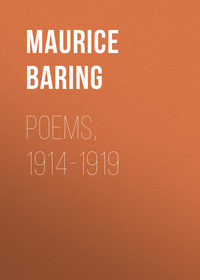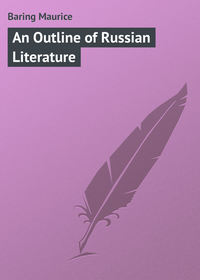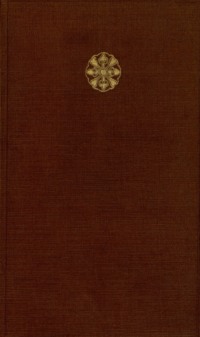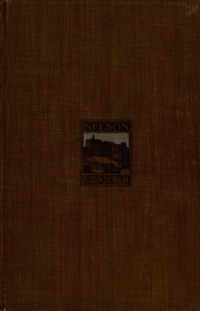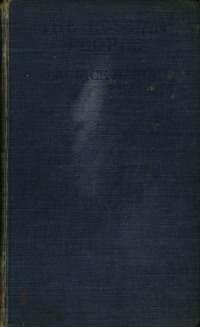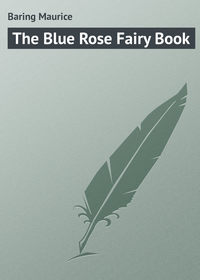 полная версия
полная версияPassing By
I asked him what there was to prevent him worshipping in Roman Catholic churches if he felt inclined that way without sacrificing his intellectual freedom to their tenets.
He said: "You talk as if it was ritual I cared for and wanted. One can be glutted with ritual in the Anglican Church if one wants that."
As for giving up one's freedom, he said I must agree that law, order and discipline were the indispensable conditions of freedom. He had never heard Catholics complain of any loss of freedom, indeed Catholic philosophy, manners, customs, and even speech, seemed to him much freer than Protestant or Agnostic philosophy, and what it stood for. He asked me which I thought was freest, a Sunday in Paris or Rome or a Sunday in Glasgow or London.
I suggested his waiting a year. He said perhaps he would.
Thursday, May 6th.
Riley talked of music, Wagner, Parsifal. He quoted some Frenchman who said that Parsifal was "moins beau que n'importe quelle Messe Basse dans n'importe quelle Église." I said that I had never been to a Low Mass in my life, but that I disliked the music at most High Masses I had attended. I said I disliked Wagner, especially Parsifal. He said he agreed about Wagner, but I did not understand what the Frenchman had meant. I confessed I did not. He said: "It is like comparing a description of something to the reality." I told him that I envied people who were born Catholics, but I did not think it was a thing you could become. He said it was not like becoming a Mussulman. He was simply going back to the older tradition of his country, to what Melanchthon and Dr Johnson called and what in the Highlands they still call the Old Religion. I told him that I had once heard a man say, talking of becoming a Roman Catholic, "if I could tell the first lie, all the rest would be easy and follow naturally down to scapulars and Holy Water."
Friday, May 7th.
Riley left this morning. He has gone back to Paris. He is not going to take any immediate step.
Sunday, May 9th
I went to see Mrs Housman yesterday afternoon. I told her what Riley had told me. I asked her if she thought people could become Roman Catholics if they were not born so. She said she wished that she had not been born a Catholic so as she might have become one. She envied those who could make the choice. I asked her if she did not consider there was something unreal about converts. She said she thought English converts were in a very difficult situation which required the utmost tact. Many perhaps lacked this tact. She said that in Canada and America, where she had lived most of her life, the anti-Catholic prejudice as it existed in England did not exist, at any rate it was not of the same kind. "The nursery anti-Catholic tradition doesn't exist there."
She asked me what I had advised Riley to do. I told her I had dissuaded him from taking such a step and had begged him to wait. She said: "If he is to become a Catholic there will be a moment when he will not be able to help it. Faith is a gift. People do not become Catholics under the influence of people or books, although people and books may sometimes help or sometimes hinder, but because they are pulled over by an invisible rope – what we call Grace."
I told her I would find it difficult to believe that a man like Riley would believe what he would have to believe. She asked me whether I found it difficult to believe that she accepted the dogmas of the Church. I said I was convinced she believed what she professed, but that I thought that born Catholics believed things in a different way than we did. I did not believe that this could be learnt by converts.
She said I probably thought that Catholics believed all sorts of things which they did not believe. Such at least was her experience of English Protestants, who seemed to imbibe curious traditions in the nursery, on the subject.
I asked her if Mr Housman believed in Catholic dogma. She said: "Albert has been baptized and brought up as a Catholic, but he is an Agnostic. He is very charitable towards Catholic institutions."
She asked me more about Riley and whether he had any Catholic friends. I said: "Not to my knowledge." "Poor man, I am afraid he will be very lonely," she said.
She said that she herself knew hardly any Catholics in England, that is to say she had no real Catholic friends, and that she felt as if she were living in perpetual exile.
"You see," she said, "your friend ought to realise that he will have to face the prejudice and the dislike not only of narrow-minded people but of very nice intelligent and broad-minded people, who agree with you about almost everything else. The Church has always been hated from the beginning, and it always will be hated. In the past it was people like Marcus Aurelius who carried out the worst persecutions and hated the Church most bitterly with the very best intentions, and it is in a different way just the same now."
I said that to me it was an impossible mental gymnastic to think that Catholicism was the same thing as early Christianity.
She said: "Because the tree has grown so big you think it is not the same plant, but it is. When I go to Mass I feel as if I were looking through the wrong end of a telescope right back into the catacombs and farther."
I told her Riley would take no decisive step. He had promised to wait. She said there was no harm in that. There were many other things I wished to ask her, but A. arrived, and after talking on various topics for a few moments I left.
Monday, May 10th.
A. told me he had been invited to dinner by Aunt Ruth next Thursday and that he was going. He asked me whether I was invited. I said I was invited.
Tuesday, May 11th.
Cunninghame said he was dining at the Housmans' to-night.
Wednesday, May 12th.
I asked C. whether he had enjoyed his dinner. He said it was very pleasant, but that the music was too classical for his taste. A. was not there.
Thursday, May 13th.
I dined last night with A. in his flat. Nobody but ourselves. A. played the pianola after dinner. He said I must come and stay with him in the country soon. He would try and get the Housmans to come too.
Friday, May 14th.
A. dined with Uncle Arthur and Aunt Ruth. So did I. It was a dinner for the American Ambassador. I sat next to a Miss Audrey Bax, a lady of decided views and picturesque appearance. She talked about Joan of Arc, and asked me whether I had read Anatole France's book about her. I said I had not, but I had read an English translation of Joan of Arc's trial which I thought one of the most impressive records I had ever read. She said: "Ah, you like the stained-glass-window point of view about those sort of people." I was rather nettled and said I preferred facts to fiction. I thought Joan of Arc as she appeared in her trial was a very sensible as well as being a very remarkable person. She had not read this. She said Anatole France told one all one wanted to know from a rational point of view. It was a comfort to read common-sense about this sort of hallucinated people. A man who was sitting opposite her joined eagerly in the conversation, and said that the two people in the whole of history who had made the finest defence when tried were Mary Queen of Scots and Joan of Arc. Miss Bax said she supposed he looked upon Mary Queen of Scots as a martyred saint. The other man, whose name I found out afterwards was Ashfield, an American who is now at the American Embassy, said that he regarded Mary Queen of Scots as a woman who was tried for her life and who had defended herself without lawyers without making a single mistake under the most difficult circumstances. He said he had been a lawyer, and spoke from a lawyer's point of view. Miss Bax went back to Joan of Arc and Anatole France and said his book was as important a work as Renan's Vie de Jésus. Mr Ashfield said he thought that work no improvement on the Gospel. I said I had not read it. Miss Bax again said that if we preferred sentimental traditions we were at liberty to do so. She preferred rational writers untainted by superstition. Ashfield said he regarded Renan as a sentimental writer. Miss Bax said: "No doubt you prefer Dean Farrar." Ashfield said he did not think Renan's book was a more successful attempt to rewrite the Gospels than Dean Farrar's although it was better written. She said that proved her point, and as she seemed satisfied, we talked of other things. But throughout her conversation she struck me for a professed free-thinker to be singularly dogmatic and sometimes almost fanatical.
Saturday, May 15th.
Spent the afternoon and evening with Solway at Woking but came back after dinner.
Sunday, May 16th.
Went to see Mrs Housman in the afternoon, but she was not at home. This is the first time she has not been at home on Sunday afternoons for a very long time.
Monday, May 17th.
A. said he was going to the opera to-night. Housman, whom he had seen yesterday, had told him it would be a very fine performance.
Tuesday, May 18th.
Went to the opera in the gallery. Some fine singing. Cunninghame had been in the Housmans' box.
Wednesday, May 19th.
Was going to dine with the Housmans to-night, but Mrs Housman is unwell.
Thursday, May 20th.
Lady Jarvis has asked me to stay with her Sunday week.
Friday, May 21st.
This morning a man called Barnes came to the office. He is an acquaintance of Cunninghame's; he is in the F.O. He talked of various things, and then he asked Cunninghame whether he knew Mrs Housman. He said she was playing fast and loose with A.'s affections. She was doing it, of course, to convert him. Catholics didn't mind how immoral they were in such a cause. He said that she was well known for it. She had refused to marry Housman till he had been converted. He had been so much in love with her that he could not refuse. I said that I happened to know that Housman had been baptized a Catholic when he was born. Cunninghame bore me out and said it was all nonsense about A. He was sure Catholicism had nothing to do with it. He knew Mrs Housman quite well and she had never mentioned it to him. Barnes said we could say what we liked, but all London was talking of A.'s unfortunate passion and Mrs H.'s behaviour.
"One sees them everywhere together," he said.
C. said: "Where?"
Barnes said: "Oh, at all the restaurants and at the opera."
Cunninghame said he had expected Mrs Housman to dinner, but she had been unable to come.
Saturday, May 22nd.
Called on Mrs Housman to inquire. They have gone to the country until Monday.
Monday, May 24th.
I had luncheon with A. to-day at his flat. He said he had been staying with the Housmans at their house on the Thames. He said he had put his foot in it. On Saturday night at dinner they were talking about Ireland, and he said he had no wish to go to a country full of priests. Mrs Housman told him, laughing, she was a Catholic. He asked me if I had known this. I told him I had always known it. He asked me whether she was very devout. I said I knew she always went to Mass on Sundays, that she had never mentioned the subject to me except once when I asked her a question with reference to a friend of mine. He asked me whether Housman was a Catholic too. I told him what I knew.
Tuesday, May 25th.
Went to the opera, in the Housmans' box. Housman and Cunninghame were there. Mrs Housman did not come. A. looked in during the entr'acte.
Wednesday, May 26th.
A. gave a dinner at his Club. All politicians except myself and Cunninghame.
Thursday, May 27th.
Tuke asked me to take a ticket for a concert at Hammersmith at which his sister is performing on the piano. I have done so.
Friday, May 28th.
Luncheon with A. at his Club. He is staying with Lady Jarvis on Saturday. The Housmans, he said, will be there. Cunninghame is going also. A. told me Mrs Housman has not been well lately. I said I thought she did too much. He asked me in what sort of way. I said she attended to a great many charities and that as Housman entertained a great deal I thought it tired her. Mrs Housman had told him I was very musical. He asked me if I played any instrument. I said none except the penny whistle. He asked me if I did not think Mrs Housman a very fine singer. I said I did. He also said that he supposed she knew a lot of priests. I said I had never met one in her house.
Sunday, May 30th. Rosedale, Surrey.
I arrived rather late last night. Besides the guests I knew I was to meet, was a Frenchman, M. Raphael Luc, and a Mrs Vaughan. After dinner we had some music. M. Luc sang several French songs, by Lully, and others that I had heard Mrs Housman sing. His singing was greatly appreciated and applauded, and it is, I confess, as far as it goes, perfection itself, as regards quality, taste and art, but I could not help thinking the whole time that it would be impossible for him to interpret Schubert.
This morning I sat in the garden and read the newspapers. Mrs Housman drove to Church which was some distance off.
Mr Winchester Hill, the novelist, arrived for luncheon and brought with him Miss Ella Dasent, the actress. At the end of the meal she gave us some vivid impersonations of contemporary actors and actresses.
We sat talking for some time in the verandah. Then Lady Jarvis took Housman to show him the garden, and Cunninghame walked away with Mrs Vaughan and M. Luc.
Miss Housman, Mr Hill, Miss Dasent, and myself remained on long chairs underneath a large tree. Miss Dasent and Mr Hill discussed at great length a play that he is adapting for her from one of his novels. The story seemed to me absurd – it was something about an Italian nobleman strangling his wife's lover with a silk handkerchief.
Towards five we had tea and after tea Mrs Vaughan took me for a stroll round the garden.
I found her a well-read woman who has lived a great deal in Paris and is familiar with the Bohemian world in more than one continent.
At dinner I sat between Mrs Housman and Cunninghame. Mrs Housman said that Luc's singing made one despair, and she felt she could never sing again after hearing him. I told her I doubted if he could interpret German music. She was annoyed with me and said I was missing the point, and that the songs he sang were exquisite.
We sat in the verandah after dinner, while Luc sang to us from the drawing-room. He sang Fauré's settings to Verlaine's words.
Letter from Guy Cunninghame to Mrs Caryl
Monday, May 21st.DEAREST ELSIE,
I have just come back from Rosedale, where I have been staying with Lady Jarvis. It is an old Tudor house that was bodily transported from the west of England. I believe it is quite genuine, but it looks unreal and the rooms are like show rooms at a second-hand dealer's. The garden is quite beautiful. We had a most amusing party. Jane Vaughan (looking very pretty), Raphael Luc, George, the Housmans. Raphael sang both nights quite divinely after dinner. On Saturday night we all sat in the big downstairs room, but after he had sung two songs Mrs Housman went out on the verandah. She is so musical that one could see it was more than she could bear. I am certain she felt she was going to cry. Sunday morning I had a long talk with Lady Jarvis. She told me Mrs Housman is a very strict and devout Catholic. We both agreed that there is no doubt that George is very much in love with her. She thinks she is in love with him. I am still not sure Lady Jarvis is right about her. I sat next to her (Mrs H.) at dinner on Saturday night, and George was on her other side. She was perfectly natural, but I thought miles away. During the whole time we were there she didn't pay much attention to him and she didn't avoid him. She went to church by herself on Sunday morning and stayed in all the afternoon. I think she likes him, but nothing more than that.
Godfrey Mellor, the silent Secretary, is devoted to her too. The other morning at the office a man came to see us and said all sorts of most absurdly silly things about Mrs H. I could see he was furious. He has known the Housmans quite a long time.
More people came down to luncheon on Sunday, but nobody interesting. George says he will be able to yacht now. I think Mrs H. is delightful. I like her more and more. I have been to the opera twice, to a good many dinners, and some balls. There may be a chance of Paris for a few days later.
Yours,G.From the Diary of Godfrey Mellor
Monday, May 31st.
I travelled back from Rosedale with A. He asked me if I was fond of yachting. I said I was a moderate sailor. He asked me to go next Saturday to his house near Littlehampton. His sister is going to be there, and perhaps the Housmans. Dined at the Club.
Tuesday, June 1st.
There is going to be a large concert at the Albert Hall for the Albemarle Relief Fund. Tuke brought the programme and placed it on my table this morning. Esther Lake is singing, and the Housmans and A. are among the patrons. Dined with A. at his Club. He told me he thought Mrs Housman was far from well. He said what she wants is sea air.
Wednesday, June 2nd.
Cunninghame told me he had dined at the Housmans' last night. He said there was no one there but himself and Carrington-Smith. He said Mrs Housman talks of going away soon. London tires her. Dined at the Club.
Thursday, June 3rd.
I have just come back from a dinner-party at Aunt Ruth's. A great many diplomats and politicians. I sat between Thornton-Davis, who is at the F.O. now, and Mrs Vernon, who is French and a Legitimist and talks of the Place de la Concorde as the Place Louis XV. Aunt Ruth said she heard A. was doing very well and spoke well in the House. It's a pity, she said, that he is such a Tory.
Friday, June 4th.
Went this afternoon to the concert at the Albert Hall for the Relief Fund in the Housmans' box. Miss Housman and Mrs Carrington-Smith were there, but neither Mrs nor Mr Housman. Miss Housman says that Mrs Housman has not been well lately. She said she goes out far too much. I enjoyed nothing in the programme. Dined at the Club.
Saturday, June 5th.
A. told me he expected me at Littlehampton, but that I would find it dull, as he had no party.
Sunday, June 6th. Littlehampton.
A. has a nice and comfortable little house. His yacht, a small cutter with room for two to sleep on board, is here. He took Mrs Campion and myself out this morning. There was what is called a nice breeze. I cannot say I enjoyed it very much. He told me that he had asked the Housmans, but they could not come, Mrs Housman is going to Cornwall soon for the rest of the summer. She has not been well, and the doctors told her she must leave London. A. said he would miss them very much. He liked them both exceedingly, and he thought Miss Sarah was such a good sort. A. said the truth was that Mrs H. worked herself to death over charities and things like that. He was sure the priests were greatly to blame for this.
Letters from Guy Cunninghame to Mrs Caryl
LONDON, Monday, June 7th.DEAREST ELSIE,
There's not the slightest chance of my coming over to Paris now. I am not going to Ascot at all this year. The Housmans thought of taking a house for Ascot week, but she has not been well, and they are staying out of London till they go down to Cornwall. They have taken a house somewhere near the Lizard, and when she goes she will stay the whole summer.
Both George and poor little Mellor are in low spirits. I had a very nice letter from Mrs H. asking me to go down there in August and to stay as long as I liked.
Housman has lent me his box for the whole of Ascot week. There is such a rush that I haven't time to write properly to you.
Yours,G.LONDON, Friday, June 18th.DEAREST ELSIE,
I have spent the most perfect Ascot week in London. I have enjoyed every moment of it. I went to the opera every night in the Housmans' box, which besides being fun was most convenient as I was able to ask people who had done things for me. I dined on Saturday with Jimmy Randall, who had been at Ascot all the week. He says that Housman has fallen violently in love with a Mrs Rachel Park. You may possibly have heard of her. She used to sing at concerts under the name of Rose Sinclair. She was quite beautiful, with enormous eyes and flaming hair, but quite brainless and quite unmusical. She married a barrister who is now Park, K.C. He works like a slave, but she spends money more quickly than he can make it. This explains the Cornwall arrangement. Jimmy R. says that H. has violent scenes with Celia R. and that the end of that idyll is only a question of hours. He says Mrs P. will lead him a dance. She is mercenary, stupid, common and a real harpy. Poor "Bert," as Jimmy Randall calls Housman. He is so good-natured. And poor Mrs H.! Mellor hardly speaks at all now, and George doesn't say much. He goes nowhere, but talks of yachting on the west coast during the summer.
Yours,G.P.S. – Just got your telegram. I am delighted you are coming to London. I particularly wanted you to meet Mrs Housman – and "Bert." You must come. And now I shall just be able to manage this if you will dine with me on Monday night. She leaves for Cornwall on Tuesday morning. I've asked George too. He stays in London till Parliament is over, and then he is going away and I shall be free. How much leave will Jack get? Three weeks at least, I hope. The Shamiers want you to stay with them Sunday week, and Lady Jarvis wants you to go down there. If you don't want to stay there, we might go down for luncheon one day. I shall be in London till the end of July. Then I am going to Worsel for a fortnight. The Housmans have asked me to go to Cornwall, and I shall try and fit that in between Worsel and the Shamiers. They have been lent a lodge in Scotland and have asked me to go there in September. I have promised to stay a few days at Edith's as well.
There is a parcel for me at the Embassy. It is too big for the bag. Could you bring it with you?
From the Diary of Godfrey Mellor
Tuesday, June 10th.
Dined with Cunninghame last night to meet his cousin, Mrs Caryl. She is the wife of a diplomat who is Second Secretary at Paris. A pleasant dinner. The Housmans were there, and A. and his sister.
Friday, June 25th..
Received a letter from Mrs Housman to-day. She says the change of air is doing her good. She hopes I will come to Cornwall some time during my holiday.
Monday, July 5th.
Dined with Housman last night. Miss Housman was there, and the Carrington-Smiths, and a Mrs Park who used to be a professional singer. She sang after dinner. Miss Housman accompanied her. She sang Tosti's Ninon, some Lassen, some Bemberg, a song by Lord Henry Somerset, and E. Purcell's Passing By. Miss Housman said it was a comfort to accompany someone who had a sense of time. She has a powerful voice and has been well trained, but Passing By did not suit her style of singing, and I regretted that she had attempted that song. She was not always in tune.
Housman enjoyed it, and accompanied her himself afterwards in some coon songs which he played by ear.
Housman asked me to stay with them for the whole of August. He said he was very anxious that I should go, as he would not be able to be much in Cornwall and he was afraid Mrs Housman would be lonely. He asked Cunninghame also. I accepted.
A. spends all his spare time now on his yacht. I am going to stay with him next Saturday.
Monday, July 12th.
A. is going to the Cowes Regatta. He asked me to go with him, but I am leaving on the 1st of August for Cornwall.
Sunday, August 1st. Grey Farm, Carbis Bay, Cornwall.


